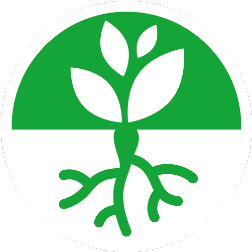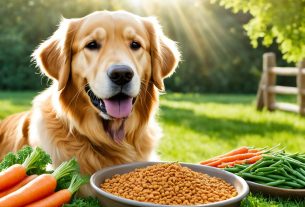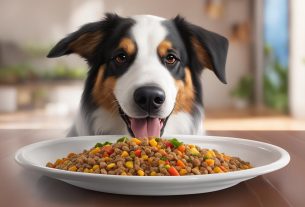The idea that vegetables are not a good source of protein is a myth.
This article will discuss the benefits and drawbacks of high protein vegetables.
Protein is an essential part of our diet and deficiency can lead to serious health consequences.
Protein is a macronutrient that is essential for life. It provides the body with energy, strength, and vitality. Protein is found in high quantities in meat, poultry, fish, eggs, dairy products and plant-based foods such as legumes and vegetables.
But do high protein vegetables even exist? Some people think that they do not because they are rare or nonexistent. But this is not true because there are many vegetables that contain more than 20% of protein by weight. These include broccoli, kale, spinach and Brussels sprouts.
Boost Your Protein Intake With THESE Vegetables
Introduction: What are High Protein Vegetables and Why are they Important?
The high protein vegetables are vegetables that have a high amount of protein in them. They can be found in the form of legumes, whole grains, fruits, nuts and seeds. The idea behind these vegetables is to provide your body with all the essential nutrients that you need while also providing you with a lot of protein.
Protein is a type of macronutrient that is essential for the body. It is made up of amino acids, which are the building blocks of proteins. There are two types of proteins – complete proteins, which contain all nine essential amino acids, and incomplete proteins, which don’t have all 9 essential amino acids.
The following vegetables contain high levels of protein:
- Kale – 31% protein
- Collard greens – 30% protein
- Swiss chard – 29% protein
- Broccoli – 27% protein
- Cauliflower – 26% protein
5 Reasons Why High Protein Vegetables, a Healthy Food Trend, Are Taking Over
High protein vegetables are becoming a popular food trend. These vegetables have been in the spotlight for a while now, but they have only recently made their way into mainstream media.
- High Protein Vegetables Have More Nutrients.
- They Are Low-Calorie and Low-Fat.
- They Are Easy to Digest and Absorb Nutrients from the Body Easily
- They Can Help You Lose Weight and Gain Muscle Mass
- They Have Fewer Carbs than Other Vegetables
5 Plant-Based High Protein Foods to Include in Your Diet
Plant-based protein foods are not only healthy but they can also be loaded with nutrients.
5 plant-based high protein foods to include in your diet:
- Quinoa
- Lentils
- Black beans
- Chickpeas
- Edamame
Use These Tips & Tools to Find Your New Favorite and Healthy Low-Calorie Food
You can use these tips to find your new favorite and healthy low-calorie food.
A great way to find out what you should eat is by checking the ingredients list of your favorite foods.
If you have a hard time finding a diet that suits you, there are some apps that can help you with that as well.
You may also like:




